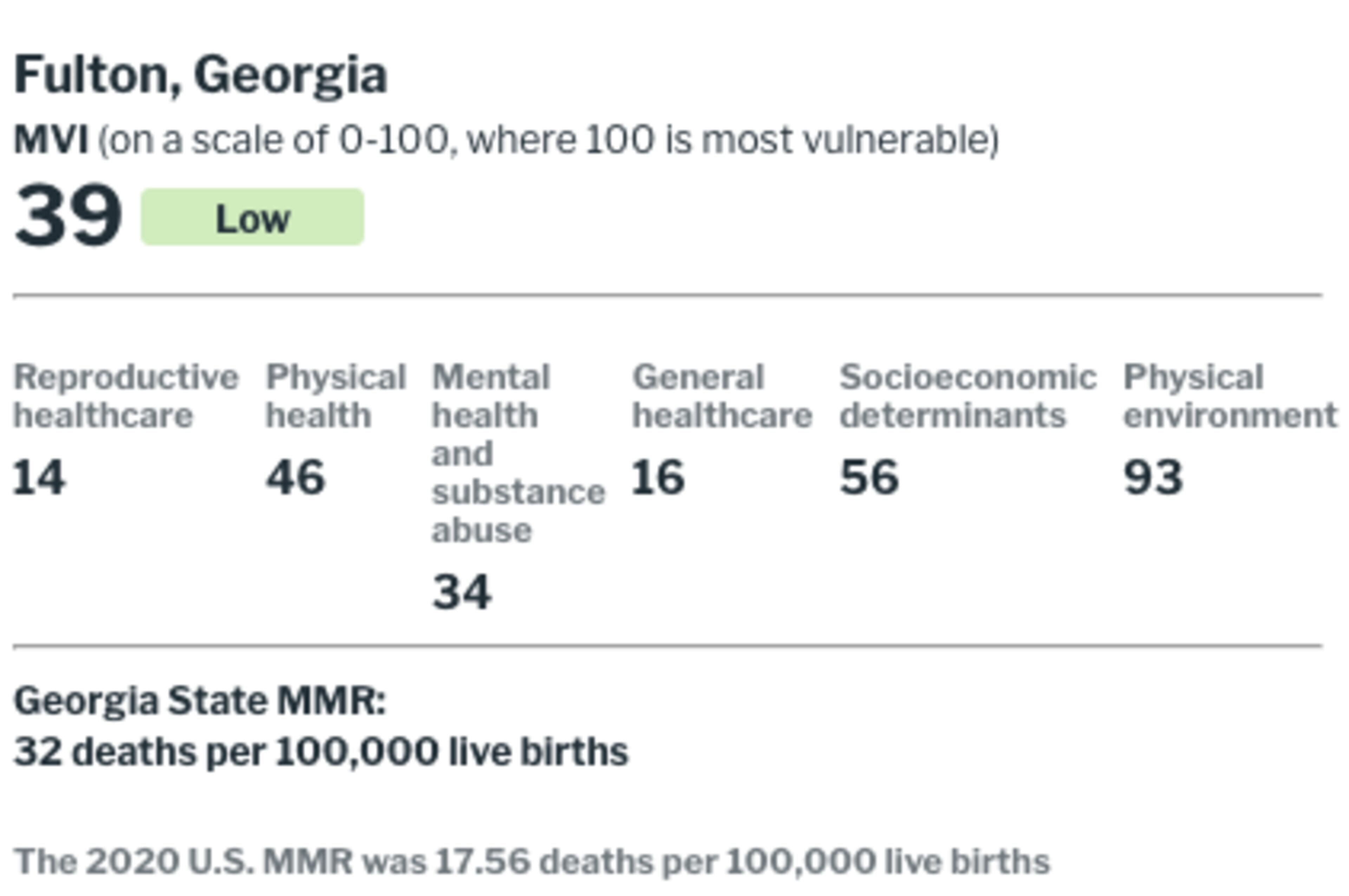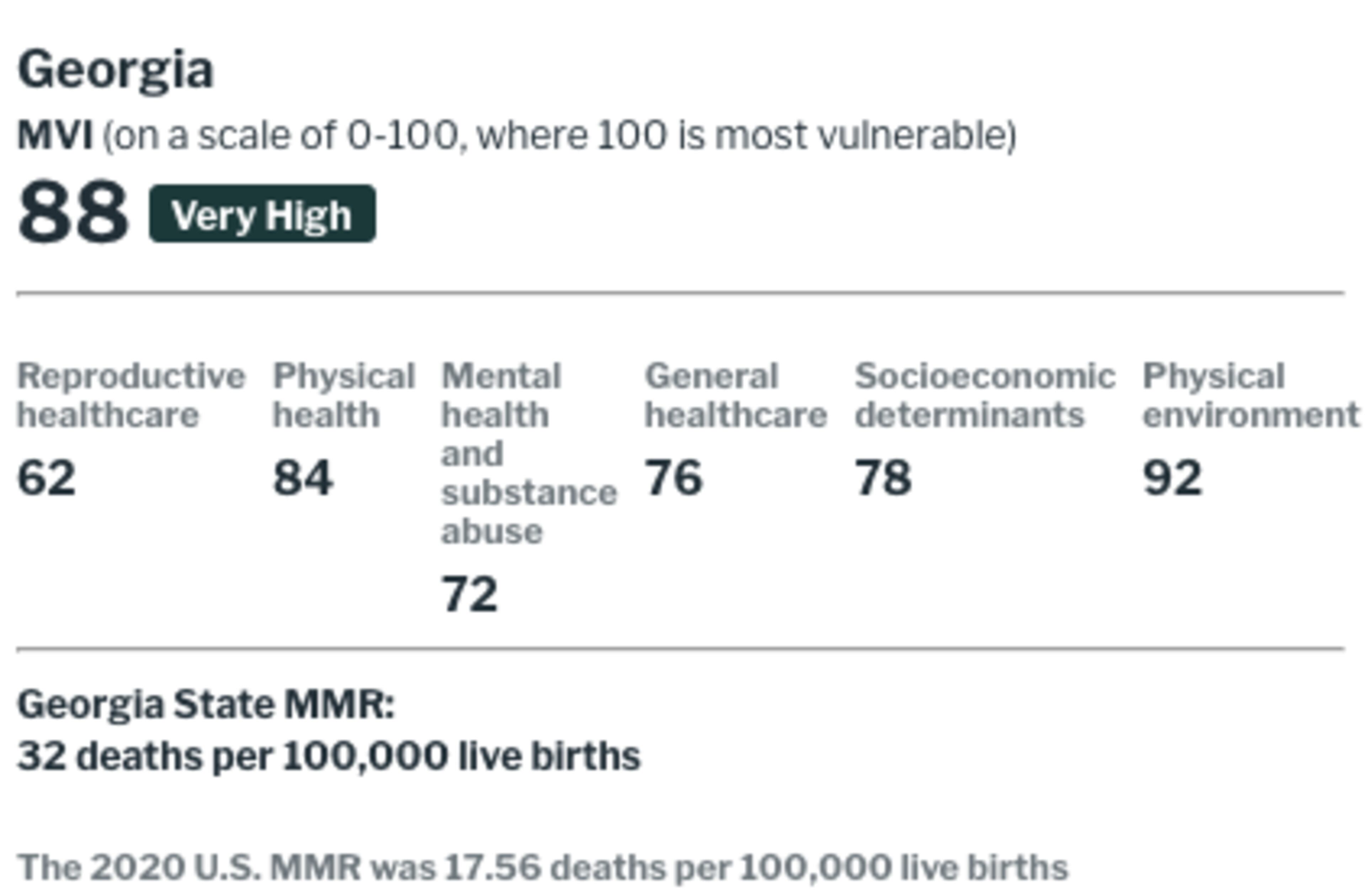Fulton County ranks well in maternal health, study says
For a complex number of reasons, the United States lags behind most other developed countries when it comes to maternal health. Surgo Ventures’ new index aims to gain a better understanding of the “why” in order to better target policies and interventions to the mothers who need them the most.
The nonprofit’s Maternal Vulnerability Index ranks counties and states based on factors such as general and reproductive health care, mental health and substance abuse, socioeconomic factors and physical environment. The index is based on 43 indicators and scores range from 0 to 100, where 0 is the least vulnerable and 100 is the most.
Fulton County scored 39 on the index, which ranks in the “low” risk category for maternal health. However, the state of Georgia scored an 88.

“When it comes to a mother’s health and survival, the United States fares worst among high-income countries,” according to the Maternal Vulnerability Index. “What’s been even less carefully explored is the degree to which a woman’s environment contributes to her risk of pregnancy-related death or other poor health outcomes.”

Data from the MVI shows that maternal vulnerability is highest in the South, Midwest and for many rural communities. It also found that “Black, American Indian and Alaska Native women of reproductive age are more likely to live under conditions that are not conducive to good maternal health — a sign of structural racism.”
Each year about 700 women die in the U.S. from pregnancy-related health conditions. Black women have a pregnancy-related death rate three times that of white women, according to 2019 Centers for Disease Control and Prevention study.
For more content like this, sign up for the Pulse newsletter here.


